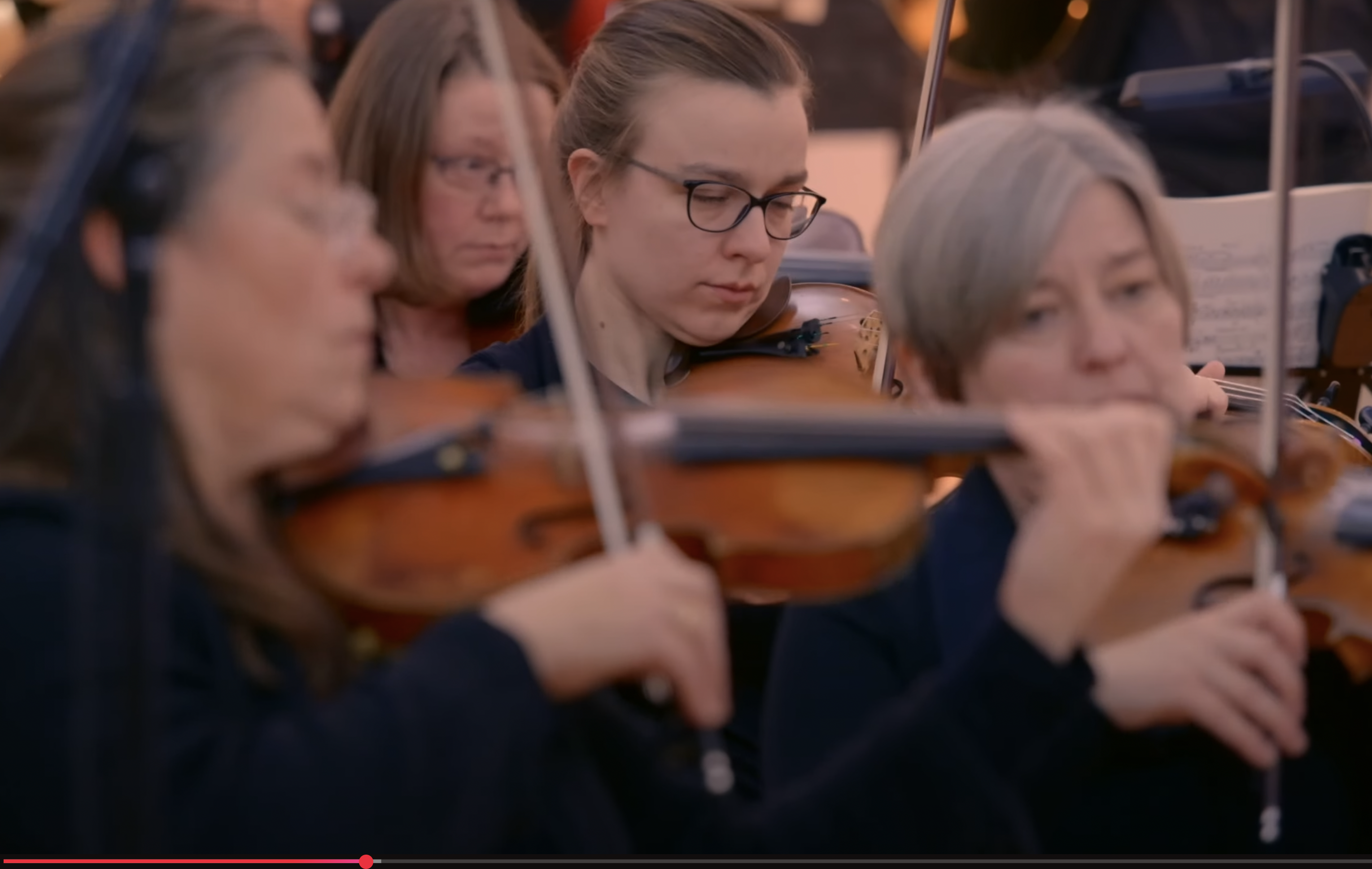Composer Portrait – Steven R. Gerber
MUSIC FROM WYASTONE – STUDIO CONCERT SERIES
Want to view the full video?
You need to be an ESO Digital Supporter to view the full content. Please click here for more information, or sign in to your account below if you’re already registered.
Already a supporter? Click here to log in.
Programme
Gerber arr. Daron Hagen Sinfonietta No.1 (Piano Quintet, 1991)
Gerber arr. Adrian Williams String Sinfonia No.1 (String Quartet No.4, 1995) – World Premiere
Gerber Two Lyric Pieces for Violin and Strings (2005) – UK Premiere
– Soloist: Emily Davis (Violin)
Gerber arr. Adrian Williams String Sinfonia No.2 (String Quartet No.6, 2011) – World Premiere
Gerber arr. Adrian Williams Sinfonietta No.2 (String Quartet No.5, 2000) – World Premiere
Artists
English Symphony Orchestra
Conductor: Kenneth Woods
Violin: Emily Davis
About this Concert
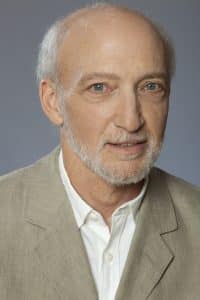 In partnership with the Steven R. Gerber Trust, we present a celebration of the music of the late American composer Steven R. Gerber, who passed away in 2015.
In partnership with the Steven R. Gerber Trust, we present a celebration of the music of the late American composer Steven R. Gerber, who passed away in 2015.
Steven R. Gerber was born on September 28, 1948 in Washington, D.C. He held degrees from Haverford College and from Princeton University, where he received a 4-year fellowship. Steven’s music composition teachers include Robert Parris, J. K. Randall, Earl Kim, and Milton Babbitt.
The ESO were excited to be giving the first performances of his two Sinfoniettas for Orchestra and his two Sinfonias for String Orchestra and his Two Lyric Pieces for Violin and Strings. The Sinfoniettas and Sinfonias are compelling arrangements of Gerber’s chamber music by composers Adrian Williams and Daron Hagen, commissioned by the Steven R. Gerber Trust.
Discover More
Kenneth Woods introduces the music of Steven R. Gerber
About the Composer - Steven R. Gerber
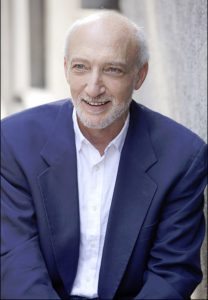 Steven R. Gerber was born in 1948 in Washington, D.C. and now lives in New York City. He received degrees from Haverford College and from Princeton University, where he received a 4-year fellowship. His composition teachers included Robert Parris, J. K. Randall, Earl Kim, and Milton Babbitt.
Steven R. Gerber was born in 1948 in Washington, D.C. and now lives in New York City. He received degrees from Haverford College and from Princeton University, where he received a 4-year fellowship. His composition teachers included Robert Parris, J. K. Randall, Earl Kim, and Milton Babbitt.
Two CDs of Gerber’s orchestral works were released on major labels in 2000. Chandos issued his Symphony No. 1, Dirge and Awakening, Viola Concerto, and Triple Overture, played by the Russian Philharmonic Orchestra under Thomas Sanderling, with Lars Anders Tomter, viola, and the Bekova Sisters Trio. KOCH International Classics, under a grant from the Aaron Copland Fund for Music, released his Violin Concerto, Cello Concerto, and Serenade for String Orchestra, played by the National Chamber Orchestra under Piotr Gajewski, with soloists Kurt Nikkanen and Carter Brey. After the American premiere of his Violin Concerto at the Concert Hall of the John F. Kennedy Center for the Performing Arts in 1995 by Nikkanen and the National Chamber Orchestra under Gajewski, the Washington Post called it “a major addition to the contemporary violin repertoire: lyrical, passionate, beautifully tailored to the instrument’s character and capabilities…Gerber has revived the spirit of romanticism in this work, with a strong sense of tonal melody and of the dramatic effects and surprises still possible in traditional forms…one of the year’s most memorable events.” And when Carter Brey premiered his Cello Concerto with the same orchestra and conductor in 1996, the Washington Post said, “Gerber’s concerto seems to have what it takes to establish a foothold…. The music is composed with a fine sense of instrumental color…. Gerber has given his soloist some fine, expressive melodies.”
Recent works of Gerber’s include a Viola Concerto written for Yuri Bashmet and premiered by Bashmet at his summer festival in Tours, France; String Quartets No. 4 and 5, written respectively for the Fine Arts and Amernet String Quartets; “Spirituals” for clarinet and string quartet, commissioned by Concertante Chamber Players for performances in 2000 at the Library of Congress and Merkin Hall (NYC) and in Harrisburg; a Clarinet Concerto for Jon Manasse, premiered by him with the National Philharmonic Orchestra under Maestro Piotr Gajewski, and “Fanfare for the Voice of A-M-E-R-I-C-A,” commissioned to celebrate VOA’s 60th anniversary, and premiered at the VOA auditorium on a 9/11 memorial concert in 2003. The Fanfare has since then been performed by the Wheeling Symphony, the Omaha Symphony, the University of Tennessee (Knoxville) Orchestra, and by the National Philharmonic Orchestra at the new Music Center at Strathmore as part of the 2005 ASOL convention.
Gerber’s music is well-known also in Russia and Ukraine, where he has had numerous tours with literally dozens of performances of his orchestral works as well as many concerts of his solo and chamber works. Several of his major works were given their world premieres there, including “Dirge and Awakening” by the Russian National Orchestra under Mikhail Pletnev at the Great Hall of the Moscow Conservatory, Violin Concerto by the Novosibirsk Philharmonic under Arnold Katz, with soloist Kurt Nikkanen, and Serenade Concertante by Chamber Orchestra Kremlin under Misha Rachlevsky at the Small Hall of the Moscow Conservatory. Gerber has written several works for famed Russian violinist Tatyana Grindenko.
In 2007 Arabesque released a CD of three of Gerber’s orchestral works, Spirituals for string orchestra, Clarinet Concerto, and Serenade Concertante, featuring the St. Petersburg State Academic Symphony, conducted by Vladimir Lande, and clarinetist Jon Manasse. In 2009 Naxos will release on its American Masters series a CD of nine solo and chamber works of Gerber, all featuring violinist Kurt Nikkanen, and including violinists Cho-Liang Lin and Cyrus Beroukhim, cellist Brinton Smith, and pianist Sara Davis Buechner.
Gerber recently completed a new orchestral work, “Music in Dark Times,” commissioned by Vladimir Ashkenazy. The four world premiere performances took place in March, 2009, with Maestro Ashkenazy conducting the San Francisco Symphony.
Find out more at www.stevengerber.com
About the Soloist - Emily Davis, violin
 Emily Davis enjoys a vibrant and international career as a violinist, spanning multiple genres as an orchestral leader, soloist and chamber musician.
Emily Davis enjoys a vibrant and international career as a violinist, spanning multiple genres as an orchestral leader, soloist and chamber musician.
Emily holds the position of Associate Leader with the Royal Scottish National Orchestra. She has regularly been invited as a guest Concertmaster to a number of ensembles including the Oslo Philharmonic Orchestra, the Trondheim Symphony Orchestra, the Singapore Symphony Orchestra, RTÉ Symphony Orchestra Dublin and the Aarhus Symphony Orchestra to name but a few.
From 2014-16 she held the position of Principal First Violin with the City of Birmingham Symphony Orchestra and from 2016-18 was Associate Concertmaster of the Bergen Philharmonic Orchestra in Norway. For two years Emily was honoured to be selected as Concertmaster of the European Union Youth Orchestra. Highlights of this time include a performance of Bruckner’s 7th Symphony with Bernard Haitink at the Concertgebouw in Amsterdam, and performances of Rimsky Korsakov’s “Scheherazade” at both the Dubai Opera House and Romanian Atheneum in Bucharest.
Emily particularly enjoys directing larger chamber ensembles from the violin. Notable performances include directing a concert at the Wigmore Hall with guest soloist Kian Soltani, directing an ensemble of young European and Cuban musicians for a live televised concert in Havana and leading a performance of Haydn’s Sinfonia Concertante at the Gothenburg Konserthuset as both director and soloist.
Solo performances have taken Emily to festivals and venues across the world. Recent highlights include Arvo Pärt’s “Fratres” with conductor Vasily Petrenko at the Pärnu Festival in Estonia; Piazzolla’s “Four Seasons” at the Bergen International Festival; the Cuban premiere of Vaughan Williams’s “Lark Ascending”; Szymanowski’s Concerto No.2 with the Ålesund Symphony Orchestra (Norway) and both Prokofiev’s Concerto No.1 and the Tchaikovsky Violin Concerto with the Wimbledon Symphony Orchestra and Outcry Ensemble in London. She has broadcast live as a soloist on British (BBC), Estonian, Romanian, Cuban and Irish (RTÉ) radio stations.
She was a founding member of the successful Artesian String Quartet from 2009-2016. Her time with the group saw performances at the Purcell Room and Kings Place, as well as live radio broadcasts for BBC Radio 3 “In Tune” and the BBC Proms. Emily was also First Violinist of the “North Sea Ensemble”, an exciting quartet that explored the great classical masterpieces alongside new commissions and genre crossing works. They have held a residency at the Britten Peares Foundation in Aldeburgh, and have performed at the Tallinn Chamber Festival, the Grafenegg Festival (Austria) and extensively across Holland and Belgium.
Emily is highly in demand as a guest principal with orchestras across the U.K. and Europe, including the Budapest Festival Orchestra, the Liverpool Philharmonic and the BBC National Orchestra of Wales. She had performed regularly with both the London Symphony Orchestra and the Philharmonia Orchestra.
She enjoys frequent invitations to collaborate with some of the leading chamber orchestras, including the Chamber Orchestra of Europe, the Aurora Orchestra in London, the Scottish Ensemble and the Scottish Chamber Orchestra. She has toured to some of the finest concert halls including Carnegie Hall (New York), Suntory Hall (Tokyo) and the Musikverein (Vienna).
Emily held a scholarship to study with Mateja Marinkovic at the Royal Academy of Music in London. She has received tuition and masterclasses from leading violinists including Maxim Vengerov and Isabelle Van Kuelen.
Now a passionate teacher herself, Emily is driven to share her eclectic musical experiences. She is a Professor of Violin at St Mary’s specialist music school in Edinburgh and has delighted in being the Senior Violin Tutor for the National Children’s Orchestra of GB. For three years running she has mentored promising young Italian students at the Ferrara Chamber Academy, and has taught many other youth ensembles across the U.K. and Norway.
Find out more at www.emilydavisviolinist.com
About the Arranger - Daron Hagen
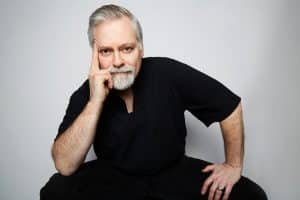 Daron Hagen is a composer, writer, director, and filmmaker. His music is performed worldwide, from the UCCA Center for Contemporary Art (formerly Ullens Center) in Beijing to the Louvre in Paris, the South Bank in London to Lincoln Center in New York City, and from Suntory Hall in Tokyo to McCaw Hall in Seattle. Commissioned by the New York Philharmonic, Seattle Opera, and The Philadelphia Orchestra, among many others, his catalogue includes eleven operas, five symphonies, twelve concertos, dozens of instrumental works, and over 300 art songs and cycles.
Daron Hagen is a composer, writer, director, and filmmaker. His music is performed worldwide, from the UCCA Center for Contemporary Art (formerly Ullens Center) in Beijing to the Louvre in Paris, the South Bank in London to Lincoln Center in New York City, and from Suntory Hall in Tokyo to McCaw Hall in Seattle. Commissioned by the New York Philharmonic, Seattle Opera, and The Philadelphia Orchestra, among many others, his catalogue includes eleven operas, five symphonies, twelve concertos, dozens of instrumental works, and over 300 art songs and cycles.
His 2020 FilmOpera Orson Rehearsed, which will be released on Naxos Records in March 2021, is presently garnering laurels at film festivals worldwide. For his filmmaking debut, Hagen wrote the libretto/script and score (both acoustic and electro-acoustic), stage (and film) directed, shot the film for the movies-within-the-film and staged opera, wrote the screenplay, edited the film, and mixed the soundtrack.
Currently on the faculty of the Chicago College of the Performing Arts and the Wintergreen Music Festival, he has taught at Bard College, the Curtis Institute of Music, and the Princeton Atelier. A Lifetime Member of the Corporation of Yaddo, Hagen has served as president of the Lotte Lehmann Foundation, and artistic director of the Seasons Music Festival Academy in Washington, conducted the cast recordings of several of his operas, and stage directed the premieres of others. Twice a Rockefeller Foundation Fellow at Bellagio, he has received the Guggenheim Fellowship, Kennedy Center Friedheim Award, ASCAP Foundation Rudolf Nissim Prize, Barlow Endowment, and Columbia University Bearns Prize; he is also the recipient of the American Academy of Arts and Letters’ Academy Award for “the artist who has achieved his singular voice.”
Born in 1961 in Milwaukee, Wisconsin, trained at the Curtis Institute of Music and at the Juilliard School, Hagen made his debut with the Philadelphia Orchestra at 19. After three decades based in Manhattan, he and his wife, composer, singer, and visual artist Gilda Lyons, moved Upstate to raise their children. His memoir, Duet With the Past, was published by McFarland and Company in April 2019.
Find out more at www.daronhagen.com
About the Arranger - Adrian Williams
Described by Yehudi Menuhin as a “master of intricate patterns and forms” Adrian Williams was born in Hertfordshire and showed precocious talent at the piano as a young child.
He began composing at the age of eleven, his early promise resulting in consultations with Lennox Berkeley followed by composition and piano studies at the Royal College of Music where his teachers included Bernard Stevens, Alan Ridout and John Lill.
During his RCM studies Williams received recognition for his first mature orchestral work, the gritty and ambitious Symphonic Studies, an achievement acknowledged by the RCM director Sir David Willcocks who conducted the work with the RCM orchestra. His final year at the College were marked by two accolades, a Leverhulme scholarship and the coveted Menuhin Prize for Composition.
The years that followed saw a period as Composer in Residence at Charterhouse School during which his music underwent a stylistic reassessment. The outcome was a tougher harmonic language that although more adventurous in its range and scope, retained an underlying melodic vein that has always remained central to his music. Several important works were to emerge from this period including the String Quartet no 2 (for the Chilingirian Quartet), a remarkable uninterrupted span of thirty eight minutes and the intricately orchestrated symphonic poem Tess for Vernon Handley and the Guildford Philharmonic Orchestra.
During the eighties a move to the Welsh borders saw Williams find his spiritual home, along with the peace of mind and creative impetus for many of his most vital works. Amongst them is the piece spawned by his winning the Guinness Prize for Composition, the cantata after Louis MacNeice Not Yet Born, two works inspired by Sidney Nolan Images of a Mind for cello and piano, inspired by the 1986 self-portrait, and the Chamber Concerto, ‘Portraits of Ned Kelly’ (Brighton Festival commission), the Cantata after Alun Lewis The Ways of Going (Hay Festival commission) and Dies Irae, the latter a BBC commission that in its power of expression remains one of Williams’ most personal statements.
It was during his early years in the Welsh borders that Williams founded the Presteigne Festival, an enterprising event that continues to thrive and maintains a strong commitment to contemporary music. As its director since 1993, George Vass regularly features Williams’ music in festival programmes through commissions and performances.
The multi-faceted, even eclectic nature of Adrian Williams’ music has also seen him branch into film and television, whilst his absorption of influences as diverse as English song and elements of jazz and minimalism has seen his catalogue of major works grow to demonstrate a richly compelling creative voice.
Ever searching for new creative horizons, Williams’ recent scores, including Maelienydd (2008) for Chamber Orchestra, the String Quartet no 4, the 2016 Piano Trio (Piano Trio Society and Gloucester Music Society joint commission) and especially the symphony currently in progress, exhibit a deeply-felt emotional core, conjuring with the atmosphere and wild, open spaces of the composer’s Welsh Borderland surroundings with a renewed sense of wonder and mystery.
The Cello Concerto (2009), commissioned by the BBC, marks the culmination of Adrian Williams’ long standing relationship with Raphael Wallfisch, an ardent champion of the composer’s works for cello. Wallfisch recorded Images of a mind on a Metronome CD with the composer, a disc which also includes another work commissioned for him Spring Requiem
and the first ever recording of the early prize-winning Sonata for solo ‘cello (1976-7).
Continuing to be important are his fruitful collaborations with the celebrated vocal group I Fagiolini and its director Robert Hollingworth. To date there are nine commissioned works for the ensemble including the latest ‘Shaping The Invisible’ using a newly-commissioned poem by Welsh national poet Gillian Clarke.
Also significant are his connections with Holland and Poland. Over several decades he has fulfilled many works and arrangements for the Amsterdam Sinfonietta and its charismatic leader Candida Thompson, including Migrations for 22 solo strings dating from 1999 and a new Concerto for Strings, jointly commissioned with the Presteigne Festival.
The most substantial work from Holland has been the large-scale cantata for chorus, children’s choir, soloists and chamber orchestra The Idea Of Peace. Commissioned by the Toonkunstkoor Utrecht for the 300th anniversary of the Treaty of Utrecht, with a libretto compiled by Arjen Eigjenraam, it was premiered in St Paul’s Cathedral, London as part of the 2013 City Of London Festival, and subsequently in Vredeburg, Utrecht the same year.
Two commissions emanated from important collaborations in Poland in 2017 & 2018, a large-scale chamber work for eight players The Diminishing Minutes of Peace based on an essay by Joseph Conrad. for the Art Deco Group in Warsaw, and Spectrum, a concerto for bassoon and string orchestra with percussion and harp, premiered in June 2018 in Poznan by Arek Adamczyk as part of a celebration of the composer’s music, which included all his music for bassoon, dating back to 1979.
Find out more at www.adrianwilliamsmusic.com
Critical Praise for the music of Steven R. Gerber
Chandos CD (Catalogue No. 9831)
Every once in a while, something comes along that is so striking that the usual list of influences, metaphors, and descriptors becomes superfluous. Such is the case with Steven Gerber’s First Symphony (1988-89). The three-movement work held me mesmerized and fascinated for its entire 25-minute length. (American Record Guide)
Each work is an important addition to music in the late 20th century, its sense of evolution from previous generations welcome at a time when change seems to have become a virtue in itself. (Fanfare)
Steven R. Gerber has one of the most direct and readily accessible voices in contemporary American music. The works on this disc…have distinctive and powerful melodic contouring. Gerber’s urgent, highly charged language arouses graphic emotions, even at first hearing. (Rough Guides/online)
Gerber has a strong melodic gift…he’s a composer with a strong and communicative voice of his own. (International Record Guide)
This is music of our time that I most strongly urge you to hear. (The Strad)
KOCH Orchestral CD (Catalogue No. KIC-CD-7501)
Steven Gerber is another outstanding composer of the new American school…The beautiful Violin Concerto is a superb example. In the first movement he uses hauntingly memorable material from his college years and writes unashamedly tonally and in sonata form…The Cello Concerto opens equally atmospherically and the soloist ruminates evocatively. The scoring is economical and very telling….These are splendid works and both soloists are fully worthy of them, and completely inside this consistently memorable music. The String Serenade…is hardly less memorable and individual… (The Penguin Guide to Compact Discs – 2002 Edition)
Violin Concerto
Steven R. Gerber’s Violin Concerto, which had its American premiere last night in the Kennedy Center Concert Hall, is a major addition to the contemporary violin repertoire: lyrical, passionate, dramatic, beautifully tailored to the instrument’s character and capabilities. It was the highlight of a program that was always fascinating and often exhilarating: the 10th anniversary celebration of the National Chamber Orchestra…Amid so many competing attractions, the Gerber Violin Concerto still stood out as few contemporary works do in programs shared with older music. Gerber… has revived the spirit of romanticism in this work, with a strong sense of tonal melody and of the dramatic effects and surprises still possible in traditional forms…one of the year’s most memorable events. (Washington Post)
Clarinet Concerto
The world premiere of Steven Gerber’s new Clarinet Concerto… [was] an important musical event. Written for Jon Manasse, …the evening’s soloist, the concerto is the work of a composer whose idiom is a coherent and logical amalgam of centuries of musical thought. Its opening thematic material, angular but immediately memorable, serves as a structural element when it reappears in each of the two movements. The character of the solo line and its textural orchestral support evolve easily from sharply defined and disconnected points of sound to passages of easy lyricism, and all of this develops naturally and without any sense of gimmick or premeditation. Most compelling, however, is Gerber’s orchestration. Within the context of a spare pizzicato texture, he has the harp, in its lowest and most sonorous range, functioning as almost a second solo instrument… the development of the second movement’s fugue theme in the low woodwinds is delightful. (Washington Post)
String Quartet No. 4
Gerber used lyrical, tonal writing as comfortably as unabated dissonance in creating stirring music with this quartet. Constructed of four short, highly inventive movements, the piece was well-received by the near-capacity crowd at the University of WisconsinMilwaukee Fine Arts Recital Hall. The quartet opens with a ‘Moderato’ movement of diatonic melodies that washes by on a wave of unabated tension. The second movement, marked ‘Lento,’ creates a gnawing dissonance through shifting chromatics at close intervals. The dramatic center of the piece is found in the third movement, marked ‘Maestoso, con moto.’ A single theme is repeated continually throughout the movement in bold gestures that make it impossible to turn away. The finale movement takes ideas from the earlier movements and weaves them into a satisfying coda. (Milwaukee Journal Sentinel)
Cello Concerto
It is risky to predict the future of any new piece of music at a time when the audience is believed to be shrinking even for established classics. But Gerber’s concerto seems to have what it takes to establish a foothold…. The music is composed with a fine sense of instrumental color, not only in the solo cello but also in the orchestration, which is vivid without losing the transparency essential in music for a chamber orchestra…. Gerber has given his soloist some fine, expressive melodies…the audience applauded him warmly and at length. (Washington Post)
For additional reviews and other information please visit www.stevengerber.com
Further Information
For additional information about Daron Hagen, visit daronhagen.com
For additional information about Adrian Williams, visit adrianwilliamsmusic.com
Production Information
Recorded at Wyastone Concert Hall, Monmouth, on 7th & 8th October 2020
Producer: Phil Rowlands
Videographer: Tim Burton
Orchestra Manager: Simon Brittlebank / The Music Agency
Stage Manager: Ed Hayes / The Music Agency
